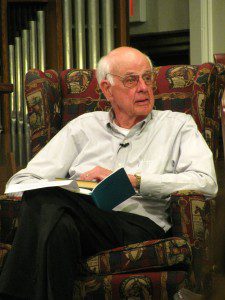This is where I repost things I believe are helpful for survival and “thrival” in the ministry. Because there is no sub-directory for pages, I’m afraid it will just get longer and longer with time.
Can the Artless Preach?
Originally published on Patheos, January 24, 2016

Within Protestantism anyway, when it comes to aspirants to the ministry, I hope it is not too harsh to say, different theological traditions seem to attract different types.
If they weren’t preachers, guys in one tradition I know of could be small-town politicians, in another, smarmy used-car salesmen. (Sorry about the smarmy thing, but you guys just come across that way.)
Before I matriculated into the Reformed tradition, I was part of a bunch of guys that worked hard at becoming that back-slapping uncle you yuk-it-up with at family gatherings. They were into group hugs.
Today I’m surrounded by men who could be accountants.
Just the facts, Ma’am.
The Reformed want to getting it right, and I like that. We’re good at summarizing doctrine, parsing our verbs, and when we’re really cooking, we even make lists to apply the Bible to our lives.
Sometimes, when we’re feeling surly, we exhort, which means we harangue. The Law is sweet on our tongues those days. We goad, we prod.
But do we inspire? I’m not talking about that saccharine stuff we use sometimes, the story of the Down Syndrome boy who was teased at recess, but when Valentine’s Day came along had a card for everyone in the class, bullies included, that sort of thing. I’m talking about the turn of phrase that opens heaven for people.
Artful preaching?
I recall reading a quotation from an old-time preacher that went something like this, “A novel is nothing but a well told lie.”
We don’t own our philistinism like that anymore. Instead we indulge in guilty pleasures. I was just talking about this the other day with a friend. I mentioned that I knew an old preacher from a back-slapper denomination who loved the Three Stooges. And he told me of a man in our denomination of certified public accountants who watches Star Trek when no one is looking.
I’m not saying that watching the Three Stooges or Star Trek will make you a better preacher, well, maybe the Three Stooges will. But learning the art of story definitely can help.
There’s two sides to this, and they’re related. First, you must be able to tell a good story if you hope to inspire, and once you’ve learned that, you’ll find that you’re a better interpreter of other people’s stories.
When I say story, I’m not just referring to anecdotes; I mean stories you have to think about, preferably something written down, with a protagonist and a plot, written in the third person. Short stories are a start, but a really long, complicated story is better: a novel would do it.
I’ve written a couple of those, a few short stories as well, and I can say from experience, not only am I better story teller than I once was, I’m a better interpreter of the Bible.
Choosing your facts carefully
I have a relative who couldn’t tell a story to save her life. She’s convinced that she can, unfortunately. But she gets lost in the detail, everything seems equally important to her. She interrupts herself every other sentence to make sure she has a name right, or the time of day, or what have you, and we all sit around politely thinking to ourselves, “Who cares? Get on with it!”
Facts can be like that. A well placed one, and you can balance the world on a noun. An avalanche of them and you are crushed by meaningless material. Facts must be ordered into hierarchies. If I were to tell you the number of clouds in the sky, or my blood pressure, or how my wallet keeps reminding me that I’m sitting on it, you might say, “Why are you telling me these things?” If I said in response, “I’m just giving you the facts about my day”, you might respond, “What’s the point of that?” To whit I could reply, like any good accountant, “I just report the facts, I don’t choose them.”
But when you tell a story you’ve got to choose; some things are more important than others. The way you know that is by seeing the point.
You see the point by getting inside a story. That’s something you probably do pretty well when you’re in the story (unlike my relative).
When you tell a story people enter into it vicariously. In a sense they live it with you in a virtual reality you create through the telling. I suppose you could say this is a kind of art, this virtual reality you make, art being making, as in artificial, or artifact, or artesian, or artful.
The Bible is the story of the world
I know that people say that the Bible is the story of God, or the story of salvation, and I don’t disagree with them. But many folk don’t know what that has to do with them. What God wants to do is his business, so long as he stays out of our business. But when you say that the Bible is the story of the world they are already in the story whether they want to be or not.
Here is how attempting to tell a really big story, like a novel, can help with this. The world’s story is immense, but it does have a protagonist–Jesus Christ the one through whom the world was made, and the heir of all things. It’s his story. Nevertheless there are billions of subplots, all weaving here and there within that larger plot. These are the stories of our lives, among other things. And these stories find their meaning within the larger story of the world.
If you can weave these little stories into the big one, you won’t need to make the Bible relevant. Instead you can ask your hearers where they fit into the story. (We’re all relevant in this story. When we glorify God we’re on the side of the protagonist. When we pursue vainglory, we’re the enemies he overcomes. We’re either wheat or weeds; and even wheat is awfully weedy. That’s why he must overcome even his friends.)
Allegory or analogy
The problem with allegories is they’re wooden, unadaptable things, with a one to one correspondence. I like The Pilgrim’s Progress just fine, but its already been done. No need for another.
Analogies though, those are highly adaptable, even protean. They can be held up to the eye, like a kaleidoscope, turned this way and that, and then there is that piercing light, filling the eye of the soul.
Now I know what you’re thinking. Christ’s story is not an analogy. And you’re right. We are the analogs, not him. He’s real.
When we preach his story we are invited into it, to participate in it so deeply that his death really becomes ours, and his life really becomes ours, and his reward really becomes ours. Now if you can pull that off, if you can get people to really see themselves in Christ, you’re a real artist.
There’s an old hymn, I Love to Tell the Story. It think it gets it right. A good preacher is not an accountant, he’s a bard, a Homer singing the praises of Achilles. But Homer’s son of a god was no savior. Our Son is; we sing his praises and bring our hearers into his story, not virtually, but really and truly. And if we do it right, “inspiration” goes from being an analogy to something real, it really happens.
Dying Where You’re Planted
Originally published on Patheos, Dec. 4, 2015. (This could also be categorized as “Productive Property”.)

Photo used by permission of Alan Cornett at pinstripepulpit.com
Grudgingly, I am coming to accept that you don’t choose the place; the place chooses you.
I’ve moved around a lot during my time on the planet, first as luggage, then as the guy with the luggage. But I’ve been sitting on the same spot for the last ten years or so. The spot is in the Connecticut River valley, the rusted heart of industrial New England. The mills are largely gone; the gun makers are leaving, and if we ever beat our spears into pruning hooks the folks who work for Electric Boat will be out of work. But I won’t be leaving any time soon. I’ve set down some roots.
Not because I’m from around here. I’m from a different valley—the Ohio River valley, western Pennsylvania specifically. It’s a rusted belt too, but different enough that I don’t feel entirely at home in my new home. There’s no going back, though; I’m different enough now that western Pennsylvania isn’t home anymore, if it ever was. I’m a stranger wherever I go, I suppose.
I’m a minister, and we all know what Wendell Berry thinks of people in my vocation. We’re careerists, careening from church to church. We just don’t care enough about the places we’re called to. I suppose he’s right, to a degree. But it begs the question. Yes, many of us blindly take our cues from mega-church pastors a thousand miles away, but the ladies in our churches often take their cues from a pastor who’s been dead for thirty years. And when a congregation turns on you, your best hope is to get out of Dodge as fast as you can. This can discourage the putting down of roots.
What does it mean to put down roots anyway? Does it mean buying a house? Shopping at farmers’ markets? Scolding yourself when you feel the urge to run?
After thinking about it a while I’ve concluded it means what the metaphor implies: it means drawing nourishment from the place where you’re planted. I’m not talking about drawing something from the atmosphere of a place. Vernacular charm and history may inspire, but neither of them will feed you (unless you can package them and sell them like they do on Cape Cod or in Vermont). What keeps you somewhere is productive property, the sort that can’t be moved. Wendell Berry has a farm. He cultivates it, draws his living from it, and serves as steward for the next generation.
We can’t all get back to the farm, though–not soon, anyway. But there are other ways rooted property can be held. Rooted property is nonfungible. And the knowledge needed to work it is tied to it. Small businesses usually work that way. Your reputation for minding the store takes years to build. Pastors know that a local businessman in the congregation is worth three corporate executives. While the guy in the corner office may line the offering plate with dough, his knowledge of a community is generally close to nil. And he could be transferred to Minneapolis in the blink of an eye. I’ve seen it: there he is; now he’s gone.
Risky Conservatism
There is a risk to staying put. We should acknowledge it. That seems odd—what could be more conservative than putting down roots? But it is wildly speculative. The risk goes by the name: “opportunity cost.” By staying put you limit yourself to what the land can yield, to what this particular place can yield. And if you’ve made Detroit your home, well, its fate is yours as well.
Local churches are a little like farms and small businesses in this way. They’re not property—at least not my property. How my church fares will largely determine how I fare. While Connecticut isn’t Detroit, I do see young people leaving, and old folks too. It’s a hard place to start out in and a hard place to finish in as well. It is expensive to live here; it’s even more expensive to die here. Still, my church is holding its own, even growing some. But it is a tough row to hoe.
I wonder a bit about the future of my church too. Someday she may be better served by a younger man. What then? Where will I go? I’ve seen old preachers kill their churches by using them as life support.
My church isn’t the only thing that keeps me here. There’s family too, my wife’s family. We moved here between pastorates a decade ago in part because we wanted our kids to be around grandparents, aunts, uncles, and cousins. It was a good move. Then I received the call to be the pastor of the church I currently serve. There was another reason we moved here though: investment real estate. I had collected some properties in this area on the side over the years.

When I was just starting out my wife and I went to visit a saintly pastor and wife who were getting along in years. They lived in a trailer. Their good cheer and hospitality spoke to their royal status in heaven amid their humble surroundings on earth. But I was ashamed—ashamed of the church for forgetting them. I’ve known others like them, elderly ministers living in trailers. Often they were the best men, not ladder-climbers or namedroppers, just simple preachers who visited widows in their distress and went to fetch wayward orphans from the street. These were men I think even Wendell Berry would respect. But it was in the car during the ride home that I decided I would not become one of them. If possible, I would be both saintly and propertied. I don’t know if I’ve managed saintly—I’ve been told my faith is pretty earthy—but I’ve managed to become propertied. Maybe I’ve made some kind of trade, I don’t know. But I knew that day that, while I could trust the Lord to meet my needs, I could not trust the church. (Not that I think there is anything to learn from mainline Protestants and their cushy retirement plans—they’ve shown that even when the church does more she somehow manages to do less.)
That sounds terribly Protestant, I know. I suffer from the cautious love for the church that typifies my brand of Christianity. So I began investing in real estate in the early 1990s. I’ve done all right. Now I’m a freeholder. I even own enough to be considered a yeoman. I could have been a voter in colonial New England. It has afforded me a rare measure of independence for a preacher. I’ve not met another pastor who has done what I’ve done. But it has cost me something. I’m not free to get up and chase the herd. I’m rooted in the Connecticut River valley.
Every formula for freedom I’ve come across contains some form of dependency, usually hidden, like some secret ingredient.
Commercial corporations have their own form of itinerancy. In the church the itinerancy was there from the start. The Son of Man had no place to lay his head, and Paul was a tentmaker—the perfect trade for a man on the road. Apostles didn’t set down roots. There was always another village on the other side of the hill that needed the gospel. (Blessed be their feet!) But the apostles enjoyed a dependence upon the Lord. Their rootlessness distracts us from the roots that stuck straight up into the air. Corporation men are not rooted in the soil of a particular place either, but neither do their roots reach up to heaven. Their roots dig into corporations that float in the contested space between heaven and earth, where the Prince of the Power of the Air dwells.
Every formula for freedom I’ve come across contains some form of dependency, usually hidden, like some secret ingredient. The Apostles enjoyed the freedom to be itinerate because they depended on bread from heaven; corporation men are unencumbered by local loyalties because they live like tiny corpuscles in national and transnational bodies. But the yeomanry: family farmers, small business owners, and people like me depend directly on a particular place for a living. As those places fare, so do we.
But we enjoy another form of freedom. We’re more self-reliant because we depend on things close at hand, things that grant us more agency than the rootless are granted. Sure, our local communities can’t separate themselves from the world entirely, as Berry’s fiction so beautifully laments, but I’ll take the risks that come with my place over the phony freedom of the corporation man. He’s tied to the earth too. The body he lives in is a giant Mickey Mouse in the Macy’s Thanksgiving Day Parade. It’s tethered to the ground with strings too thin to be seen on television. But eventually everything that begins on earth falls back down to earth and dies. There is great freedom in accepting this. I suppose I will die where I am planted.
This essay originally appeared in Front Porch Republic.